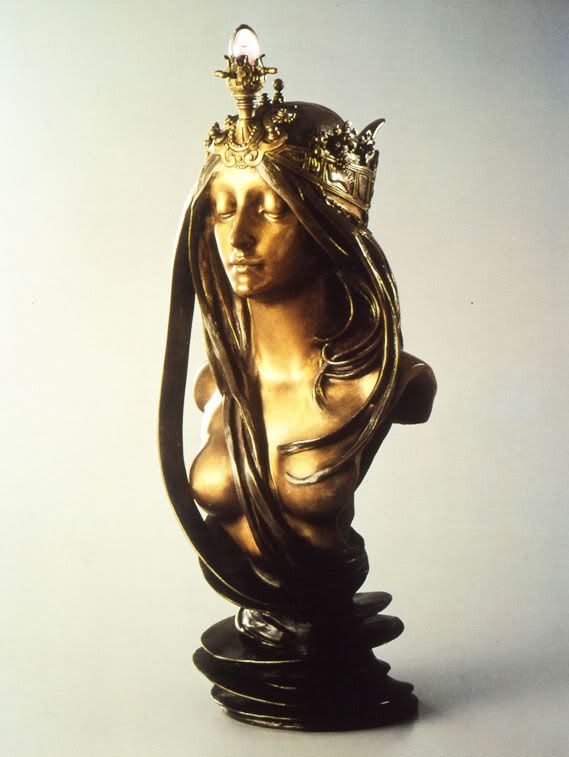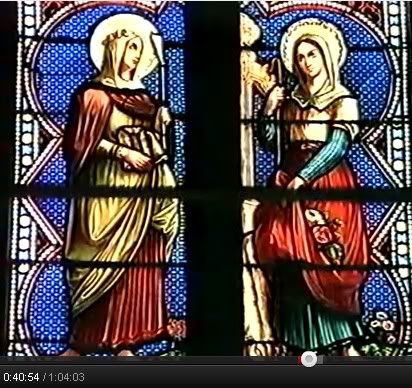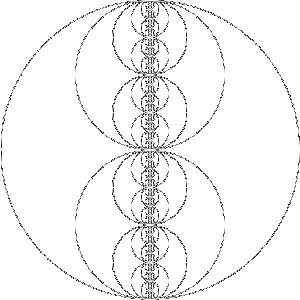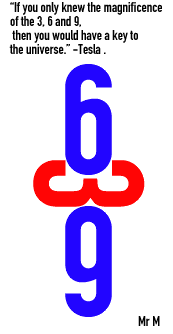The Poetic Edda: Voluspo
part II
37. Northward a hall | in Nithavellir
Of gold there rose | for Sindri's race;
And in Okolnir | another stood,
Where the giant Brimir | his beer-hall had.
38. A hall I saw, | far from the sun,
On Nastrond it stands, | and the doors face north,
Venom drops | through the smoke-vent down,
For around the walls | do serpents wind.
40. The giantess old | in Ironwood sat,
In the east, and bore | the brood of Fenrir;
Among these one | in monster's guise
Was soon to steal | the sun from the sky.
41. There feeds he full | on the flesh of the dead,
And the home of the gods | he reddens with gore;
Dark grows the sun, | and in summer soon
Come mighty storms: | would you know yet more?
43. Then to the gods | crowed Gollinkambi,
He wakes the heroes | in Othin's hall;
And beneath the earth | does another crow,
The rust-red bird | at the bars of Hel.
44. Now Garm howls loud | before Gnipahellir,
The fetters will burst, | and the wolf run free;
Much do I know, | and more can see
Of the fate of the gods, | the mighty in fight.
46. Fast move the sons | of Mim, and fate
Is heard in the note | of the Gjallarhorn;
Loud blows Heimdall, | the horn is aloft,
In fear quake all | who on Hel-roads are.
47. Yggdrasil shakes, | and shiver on high
The ancient limbs, | and the giant is loose;
To the head of Mim | does Othin give heed,
But the kinsman of Surt | shall slay him soon.
49. Now Garm howls loud | before Gnipahellir,
The fetters will burst, | and the wolf run free
Much do I know, | and more can see
Of the fate of the gods, | the mighty in fight.
50. From the east comes Hrym | with shield held high;
In giant-wrath | does the serpent writhe;
O'er the waves he twists, | and the tawny eagle
Gnaws corpses screaming; | Naglfar is loose.
52. Surt fares from the south | with the scourge of branches,
The sun of the battle-gods | shone from his sword;
The crags are sundered, | the giant-women sink,
The dead throng Hel-way, | and heaven is cloven.
53. Now comes to Hlin | yet another hurt,
When Othin fares | to fight with the wolf,
And Beli's fair slayer | seeks out Surt,
For there must fall | the joy of Frigg.
55. Hither there comes | the son of Hlothyn,
The bright snake gapes | to heaven above;
. . . . . . . . . .
Against the serpent | goes Othin's son.
56. In anger smites | the warder of earth,--
Forth from their homes | must all men flee;-
Nine paces fares | the son of Fjorgyn,
And, slain by the serpent, | fearless he sinks.
58. Now Garm howls loud | before Gnipahellir,
The fetters will burst, | and the wolf run free;
Much do I know, | and more can see
Of the fate of the gods, | the mighty in fight.
59. Now do I see | the earth anew
Rise all green | from the waves again;
The cataracts fall, | and the eagle flies,
And fish he catches | beneath the cliffs.
61. In wondrous beauty | once again
Shall the golden tables | stand mid the grass,
Which the gods had owned | in the days of old,
. . . . . . . . . .
62. Then fields unsowed | bear ripened fruit,
All ills grow better, | and Baldr comes back;
Baldr and Hoth dwell | in Hropt's battle-hall,
And the mighty gods: | would you know yet more?
64. More fair than the sun, | a hall I see,
Roofed with gold, | on Gimle it stands;
There shall the righteous | rulers dwell,
And happiness ever | there shall they have.
65. There comes on high, | all power to hold,
A mighty lord, | all lands he rules.
. . . . . . . . . .
. . . . . . . . . .

part II
37. Northward a hall | in Nithavellir
Of gold there rose | for Sindri's race;
And in Okolnir | another stood,
Where the giant Brimir | his beer-hall had.
38. A hall I saw, | far from the sun,
On Nastrond it stands, | and the doors face north,
Venom drops | through the smoke-vent down,
For around the walls | do serpents wind.
40. The giantess old | in Ironwood sat,
In the east, and bore | the brood of Fenrir;
Among these one | in monster's guise
Was soon to steal | the sun from the sky.
41. There feeds he full | on the flesh of the dead,
And the home of the gods | he reddens with gore;
Dark grows the sun, | and in summer soon
Come mighty storms: | would you know yet more?
43. Then to the gods | crowed Gollinkambi,
He wakes the heroes | in Othin's hall;
And beneath the earth | does another crow,
The rust-red bird | at the bars of Hel.
44. Now Garm howls loud | before Gnipahellir,
The fetters will burst, | and the wolf run free;
Much do I know, | and more can see
Of the fate of the gods, | the mighty in fight.
46. Fast move the sons | of Mim, and fate
Is heard in the note | of the Gjallarhorn;
Loud blows Heimdall, | the horn is aloft,
In fear quake all | who on Hel-roads are.
47. Yggdrasil shakes, | and shiver on high
The ancient limbs, | and the giant is loose;
To the head of Mim | does Othin give heed,
But the kinsman of Surt | shall slay him soon.
49. Now Garm howls loud | before Gnipahellir,
The fetters will burst, | and the wolf run free
Much do I know, | and more can see
Of the fate of the gods, | the mighty in fight.
50. From the east comes Hrym | with shield held high;
In giant-wrath | does the serpent writhe;
O'er the waves he twists, | and the tawny eagle
Gnaws corpses screaming; | Naglfar is loose.
52. Surt fares from the south | with the scourge of branches,
The sun of the battle-gods | shone from his sword;
The crags are sundered, | the giant-women sink,
The dead throng Hel-way, | and heaven is cloven.
53. Now comes to Hlin | yet another hurt,
When Othin fares | to fight with the wolf,
And Beli's fair slayer | seeks out Surt,
For there must fall | the joy of Frigg.
55. Hither there comes | the son of Hlothyn,
The bright snake gapes | to heaven above;
. . . . . . . . . .
Against the serpent | goes Othin's son.
56. In anger smites | the warder of earth,--
Forth from their homes | must all men flee;-
Nine paces fares | the son of Fjorgyn,
And, slain by the serpent, | fearless he sinks.
58. Now Garm howls loud | before Gnipahellir,
The fetters will burst, | and the wolf run free;
Much do I know, | and more can see
Of the fate of the gods, | the mighty in fight.
59. Now do I see | the earth anew
Rise all green | from the waves again;
The cataracts fall, | and the eagle flies,
And fish he catches | beneath the cliffs.
61. In wondrous beauty | once again
Shall the golden tables | stand mid the grass,
Which the gods had owned | in the days of old,
. . . . . . . . . .
62. Then fields unsowed | bear ripened fruit,
All ills grow better, | and Baldr comes back;
Baldr and Hoth dwell | in Hropt's battle-hall,
And the mighty gods: | would you know yet more?
64. More fair than the sun, | a hall I see,
Roofed with gold, | on Gimle it stands;
There shall the righteous | rulers dwell,
And happiness ever | there shall they have.
65. There comes on high, | all power to hold,
A mighty lord, | all lands he rules.
. . . . . . . . . .
. . . . . . . . . .
































Comment